Why Hydration + Electrolytes Are Key for Mental Performance
🌟 Introduction
When you think about boosting brain performance, you might imagine nootropics, caffeine, or therapy strategies. But often, the simplest and most powerful tool is overlooked: hydration and electrolyte balance.
The human brain is nearly 75% water. Every thought, memory, and decision depends on fluid balance and electrical signals. Even mild dehydration — as little as 1–2% of body weight lost in water — can impair concentration, slow reaction times, and worsen mood.
Electrolytes (sodium, potassium, magnesium, calcium, chloride, phosphate, and bicarbonate) are equally vital. They regulate the brain’s electrical signaling, nutrient transport, and energy balance. Without proper electrolyte levels, hydration alone won’t fully restore performance.
This article explores:
🔬 The science of hydration and the brain
⚡ The role of electrolytes in cognition
🌿 Supplements and strategies for hydration balance
🛋️ Therapy practices that reinforce hydration habits
🌬️ Breathwork that supports fluid + electrolyte balance
📚 Scientific references
Looking for supplements for Focus and Concentration? Click here.
💧 Hydration and the Brain
Why Water Matters 🧠
Water is essential for neuronal firing, blood flow, and oxygen delivery.
Dehydration thickens blood, making circulation less efficient, impairing delivery of glucose and oxygen.
Water supports the glymphatic system, which clears brain toxins during sleep.
Signs of Mild Dehydration 🌡️
Brain fog
Headaches
Irritability
Reduced focus and slower reaction times
Fatigue
Even mild dehydration affects the prefrontal cortex — the part of the brain responsible for concentration and decision-making.
⚡ The Role of Electrolytes in Mental Performance
Electrolytes are minerals with electric charges, crucial for neuronal communication.
Sodium (Na⁺) 🧂
Maintains fluid balance.
Essential for action potentials (electrical signals in the brain).
Low sodium (hyponatremia) can cause confusion, fatigue, and even seizures.
Potassium (K⁺) 🍌
Balances sodium for proper nerve conduction.
Supports focus, learning, and reaction speed.
Magnesium (Mg²⁺) 🌿
Regulates NMDA receptors (learning + memory).
Calms the nervous system by supporting GABA.
Deficiency linked to anxiety, poor sleep, and brain fog.
Calcium (Ca²⁺) 🥛
Critical for neurotransmitter release.
Supports memory and synaptic plasticity.
Chloride (Cl⁻) & Bicarbonate (HCO₃⁻) ⚖️
Maintain acid–base balance in the brain.
Support cellular hydration.
Without electrolytes, water cannot effectively hydrate cells — especially neurons.
🌿 Supplements and Strategies for Hydration + Electrolytes

Electrolyte Powders & Drinks 🥤
Provide sodium, potassium, and magnesium.
Best for athletes, people in hot climates, or heavy sweaters.
Avoid sugary sports drinks; look for low-sugar formulations.
Magnesium Supplements 🌙
Forms: magnesium glycinate, citrate, or L-threonate (for the brain).
Supports focus, calmness, and sleep.
Coconut Water 🥥
Natural source of potassium and sodium.
Good alternative to artificial sports drinks.
Potassium-Rich Foods 🍌🥑
Bananas, avocados, sweet potatoes.
Support steady energy and nerve conduction.
Sodium Balance 🧂
Too much sodium impairs blood pressure.
Too little sodium causes confusion and fatigue.
Aim for moderate intake with whole foods and electrolyte blends.
Hydration Habits 💧
2–3 liters of water/day depending on body size, climate, and activity.
Include electrolytes if you sweat heavily, drink lots of coffee, or fast.
Looking for supplements for Focus and Concentration? Click here.
🛋️ Therapy-Inspired Approaches to Hydration
Supplements and fluids provide the chemistry — but behavior change ensures consistency.
CBT (Cognitive Behavioral Therapy): Reframe hydration as an essential part of mental health, not just physical health.
Mindfulness: Pay attention to body signals of thirst before cognitive decline sets in.
ACT (Acceptance and Commitment Therapy): Anchor hydration in values (“I hydrate to stay sharp for my work/studies”).
Behavioral Activation: Pair hydration with habits (drink a glass of water before emails, meetings, or workouts).
Looking for online therapy ? Click Here.
🌬️ Breathwork and Electrolyte Balance

Breathwork affects hydration indirectly through stress and acid–base balance.
Diaphragmatic Breathing 🫁: Improves oxygen delivery, reduces stress-driven dehydration.
Box Breathing (4-4-4-4) 🟦: Balances the nervous system, reducing stress-related fluid loss.
Alternate-Nostril Breathing 🌗: Balances hemispheric brain activity, supports calm clarity.
4-7-8 Breathing 🌙: Promotes relaxation and sleep, allowing overnight hydration restoration.
Hyperventilation from stress or anxiety can alter blood pH, making electrolyte balance even more crucial.
Want to try Breathwork? Click Here.
🧩 Daily Routine for Hydration + Mental Focus
Morning 🌞
500 mL water with pinch of sea salt + lemon.
Electrolyte supplement if dehydrated.
Diaphragmatic breathing for oxygenation.
Afternoon ⚡
Coconut water or potassium-rich snack (banana, avocado).
Mindful water break during work.
Box breathing reset.
Evening 🌙
Herbal tea + magnesium glycinate.
Journaling (therapy-inspired reflection).
4-7-8 breathing before sleep.
🧠 Who Benefits Most?
Students: Prevent brain fog during study marathons.
Professionals: Improve focus during long meetings.
Athletes: Replace fluids and electrolytes lost through sweat.
Older adults: Prevent dehydration-related confusion.
Gamers/e-sports players: Stay sharp and reactive under pressure.
⚠️ When to Be Cautious
People with kidney disease should avoid high electrolyte intake without supervision.
Overhydration (hyponatremia) is dangerous — balance water with electrolytes.
Magnesium supplements can cause digestive upset if overdosed.
🌟 Final Thoughts
When it comes to mental performance, hydration and electrolytes are non-negotiable foundations. Water fuels the brain’s metabolic processes, while electrolytes ensure neurons fire efficiently. Together, they:
Prevent brain fog
Improve memory and focus
Reduce stress effects
Support long-term cognitive resilience
Paired with:
💊 Electrolyte supplements and magnesium
🛋️ Therapy-based hydration habits
🌬️ Breathwork for nervous system balance
…hydration becomes a simple yet powerful strategy for peak mental performance.
📚 References
Masento NA, et al. Effects of hydration on cognition. Nutrients.
Popkin BM, et al. Water and human health. Nutr Rev.
Benton D, Burgess N. The effect of the consumption of water on memory. Appetite.
Edmonds CJ, Burford D. Should children drink more water? Appetite.
Wilson MM, Morley JE. Hydration and cognitive performance in older adults. J Gerontol A Biol Sci Med Sci.
Kleiner SM. Water: An essential but overlooked nutrient. J Am Diet Assoc.
Lieberman HR. Hydration and cognitive performance. J Am Coll Nutr.
Manz F, Wentz A. Hydration status and cognitive function. Eur J Clin Nutr.
Related Posts
-

Creating a Supplement Stack for Motivation, Energy, and Anti-Procrastination
Motivation is the fuel behind every meaningful achievement—but it’s not just about willpower. It’s a mix of mindset, brain chemistry, and momentum. When energy, focus, and purpose align, action feels natural instead of forced. Learn how to harness motivation as a daily state, not a fleeting feeling.
-

Supplements for Building Consistency and Reducing Chronic Procrastination
Biochemistry is the bridge between biology and chemistry—the science of life at the molecular level. It explains how nutrients, hormones, and neurotransmitters interact to create energy, thought, and emotion. From brain function to muscle movement, biochemistry reveals the invisible processes that sustain health, balance, and vitality.
-

GABA and Procrastination: Supporting Calm Focus for Productivity
GABA is the brain’s natural calming messenger—a neurotransmitter that helps slow mental overactivity and ease stress. When GABA levels drop, focus fades, anxiety rises, and procrastination becomes more likely. By supporting GABA through nutrition, lifestyle, and supplements, you can restore calm clarity, improve focus, and take action with steady, balanced energy.
-

Ashwagandha and Procrastination: Lowering Stress to Improve Action
Science is the language of curiosity and discovery. It helps us understand the hidden patterns behind life, energy, and the universe. Through experimentation and critical thinking, science connects imagination to evidence—turning questions into knowledge. Whether through microscopes, molecules, or minds at work, science represents our endless pursuit of truth and innovation.
-

Neurotransmitters and Motivation: Supplements That Support Drive and Focus
Supplements can do more than boost physical health—they can also enhance mental clarity, focus, and motivation. Nutrients like omega-3s, magnesium, B vitamins, and adaptogens help balance neurotransmitters, stabilize mood, and support brain energy. When combined with good sleep, nutrition, and mindful habits, they can transform how your brain performs under stress.
-

How Stress Hormones Like Cortisol Fuel Procrastination (and What Helps)
Blood sugar isn’t just about physical health—it directly impacts focus, mood, and motivation. When glucose levels spike and crash, energy and attention do the same, fueling procrastination and brain fog. Learning how to stabilize blood sugar through balanced meals, mindful habits, and key nutrients helps keep your mind steady, focused, and ready to act.
-

Brain Fog and Procrastination: Supplements for Mental Clarity
Brain fog can turn even simple tasks into mental hurdles. When your thoughts feel slow and unclear, procrastination often follows—making focus and productivity seem impossible. This article explores the biochemical and lifestyle causes of brain fog and reveals the most effective supplements for restoring mental clarity, focus, and sustained energy.
-

The Link Between Low Energy and Procrastination: Can Supplements Help?
Neurochemistry shapes how we think, feel, and act. When neurotransmitters like dopamine, serotonin, and GABA fall out of balance, it can lead to fatigue, anxiety, or lack of motivation—fueling procrastination and low mood. Understanding the brain’s chemical communication system helps us find ways to restore focus, calm, and emotional stability through nutrition, mindfulness, and targeted supplements.
-

Why Do We Procrastinate? The Role of Dopamine and Supplements That Support It
Dopamine is the brain’s motivation messenger—the chemical that fuels focus, reward, and drive. When dopamine levels drop, even simple tasks can feel impossible to start. This article explores how dopamine shapes procrastination, motivation, and mental energy, along with natural supplements and daily habits that help restore balance and get things done.
-

Phosphatidylserine and Stress Reduction for People with BDD
Stress is more than a mental state—it’s a full-body experience that affects hormones, brain chemistry, and emotional balance. For people with Body Dysmorphic Disorder (BDD), constant tension and worry about appearance can overload the nervous system. Learning how stress works and finding ways to calm it is key to breaking the cycle of anxiety and self-criticism.
-

How Antioxidants Like Vitamin C & E Support Mental Health in BDD
Antioxidants are the body’s natural defense against stress and inflammation. For people with Body Dysmorphic Disorder (BDD), oxidative stress can worsen fatigue, anxiety, and emotional imbalance. Nutrients like Vitamin C and E help protect brain cells, boost neurotransmitter function, and support a calmer, clearer mindset—building a stronger foundation for recovery.
-

Ginkgo Biloba and Memory Support for BDD Recovery
Emotional regulation is the foundation of healing from Body Dysmorphic Disorder (BDD). When the nervous system stays in constant overdrive, even small stressors can trigger self-critical spirals. Learning to calm emotional reactivity helps restore clarity, confidence, and a sense of inner balance. By blending mindfulness, nervous system support, and self-compassion, you can retrain your brain to respond—not react—to emotion.
-

Alpha GPC and Cognitive Function in Body Dysmorphic Disorder
Mental fatigue can feel like your brain has hit a wall—thoughts slow down, focus fades, and motivation disappears. For people with Body Dysmorphic Disorder (BDD), chronic overthinking, emotional stress, and constant self-evaluation can deplete mental energy even further. Understanding what causes this cognitive exhaustion is the first step toward recovery—through rest, balanced nutrition, and targeted brain-supporting supplements.
-

N-Acetyl L-Tyrosine and BDD: Supporting Mental Clarity
Chronic stress doesn’t just affect your mood—it reshapes your brain chemistry, weakens focus, and fuels the obsessive thought loops common in Body Dysmorphic Disorder (BDD). Over time, constant cortisol elevation drains mental energy and emotional balance. Learning to recognize and manage chronic stress is essential to restoring mental clarity, self-compassion, and resilience.
-

Chamomile and Lavender for Calming Obsessive Body Image Thoughts
The nervous system is the command center of our emotional and physical world—and in Body Dysmorphic Disorder (BDD), it often operates in overdrive. Understanding how the brain and body communicate under stress reveals why intrusive thoughts feel uncontrollable. Learning to regulate the nervous system through calm practices, nutrition, and supplements helps restore inner balance and emotional safety.
-

Adaptogens for Body Dysmorphic Disorder: Rhodiola, Ginseng, and More
Rhodiola rosea, often called the “golden root,” is an adaptogenic herb renowned for boosting stress resilience and mental endurance. For individuals with Body Dysmorphic Disorder (BDD), Rhodiola may help reduce fatigue, regulate cortisol, and enhance emotional balance. By supporting both mind and body, this powerful plant promotes calm focus, improved mood, and renewed energy to face daily challenges.
-

B Vitamins for Stress Resilience in BDD: Rebuilding Calm from Within
Biochemistry is at the heart of every thought, emotion, and reaction we experience. In Body Dysmorphic Disorder (BDD), chemical imbalances in neurotransmitters like serotonin, dopamine, and GABA can amplify stress and distort self-perception. Understanding the biochemistry behind mood and stress regulation offers a path toward healing—bridging the gap between emotional experience and the body’s molecular balance.
-

Melatonin and Body Dysmorphic Disorder: Restoring Healthy Sleep Patterns
Melatonin, the body’s natural sleep hormone, plays a vital role in helping people with Body Dysmorphic Disorder (BDD) restore healthy sleep cycles. When anxiety and obsessive thinking interfere with rest, melatonin levels often drop, leading to more emotional reactivity and distorted self-perception. This article explores how melatonin works, why BDD disrupts it, and how natural supplementation—combined with mindful routines—can help the brain and body finally find calm at night.
-

Sleep Struggles with BDD: Supplements for Rest and Recovery
When you’re living with Body Dysmorphic Disorder (BDD), restful sleep can feel impossible—but the right supplements can help reset your body’s natural rhythm. From magnesium and L-theanine to 5-HTP and ashwagandha, these nutrients support relaxation, lower cortisol, and enhance melatonin production. This article explores how supplements can calm the mind, ease nighttime anxiety, and promote true restorative sleep for emotional and physical recovery.
-

5-HTP and Serotonin Balance: Could It Help with Body Dysmorphic Disorder?
Anxiety can feel like a storm inside the mind—restless, overwhelming, and hard to control. In people with Body Dysmorphic Disorder (BDD), anxiety often fuels obsessive thoughts and self-criticism, creating a painful cycle of worry and self-doubt. This article explores the biological roots of anxiety, the role of neurotransmitters like serotonin and GABA, and how natural strategies such as mindfulness, supplements, and nervous system regulation can restore calm and mental clarity.
-

Can Ashwagandha Help Ease Stress and Anxiety in Body Dysmorphic Disorder?
Neurotransmitters like serotonin, dopamine, GABA, and acetylcholine are the chemical messengers that shape how we think, feel, and react to stress. In Body Dysmorphic Disorder (BDD), imbalances in these neurotransmitters can amplify anxiety, obsessive thinking, and emotional distress. This article explores how restoring healthy brain chemistry through nutrition, supplements, and mindfulness can help bring clarity, calm, and emotional stability.
-

L-Theanine for BDD: Finding Calm in the Mind
Neurochemistry plays a central role in how we think, feel, and see ourselves. For those living with Body Dysmorphic Disorder (BDD), imbalances in neurotransmitters like serotonin, dopamine, and GABA can intensify anxiety, obsessive thoughts, and emotional distress. This article explores how regulating brain chemistry through supplements, mindfulness, and lifestyle changes can bring the nervous system back into harmony and restore inner calm.
-

Omega-3 Fatty Acids and Body Image Disorders: Supporting Emotional Health
Omega-3 fatty acids do far more than support heart health—they nourish the brain, stabilize mood, and may ease the emotional turbulence tied to body image disorders like BDD. This in-depth article explores how omega-3s regulate serotonin, dopamine, and inflammation, helping individuals reduce obsessive thoughts and rebuild self-acceptance. It also connects nutrition to therapy, mindfulness, and nervous system balance for holistic emotional healing.
-

Magnesium and BDD: Calming an Overactive Nervous System
Magnesium plays a crucial role in calming an overactive nervous system—something people with Body Dysmorphic Disorder (BDD) struggle with daily. This article explores how magnesium supports relaxation, emotional regulation, and stress reduction while diving into the science behind its connection to brain chemistry. It also examines how combining magnesium supplementation with therapy and breathwork can help rebalance the body’s stress response, reduce obsessive thought patterns, and promote lasting nervous system calm.
-

The Gut-Brain Axis and BDD: Why Probiotics Might Matter
The gut and brain are constantly in conversation — and that dialogue may shape how you experience Body Dysmorphic Disorder. By nurturing your microbiome with probiotics, prebiotics, and gut-healing nutrients, you can help rebalance serotonin, calm anxiety, and restore emotional stability from within 🧠🦠.
-
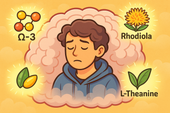
Brain Fog and Body Dysmorphic Disorder: Can Nootropic Supplements Help?
Brain fog often accompanies Body Dysmorphic Disorder, clouding focus and deepening emotional fatigue. Nootropic supplements like L-theanine, Rhodiola, and CoQ10 can help restore mental clarity, balance neurotransmitters, and bring calm energy back to the mind 🌿🧠.
-

How Stress Hormones Like Cortisol May Worsen Body Dysmorphic Disorder
Chronic stress floods the brain with cortisol — the hormone that keeps you on high alert. In Body Dysmorphic Disorder, this chemical overdrive fuels anxiety, distorts self-image, and traps the body in survival mode. Calming cortisol helps restore both peace and perspective 🌿🧠.
-

The Role of Neurotransmitters in BDD—and How Supplements May Help
Neurotransmitters like serotonin, dopamine, glutamate, and GABA shape how people with Body Dysmorphic Disorder perceive themselves. When these brain messengers fall out of balance, perception distorts — but targeted supplements can help restore calm, focus, and emotional regulation 🧠🌿.
-

What Is Body Dysmorphic Disorder? A Deeper Look at the Mind-Body Connection
Body Dysmorphic Disorder (BDD) isn’t just about appearance — it’s about perception. When brain chemistry, trauma, and stress distort self-image, the mind begins to see flaws that aren’t truly there. Healing starts by calming the nervous system and reconnecting mind and body 🪞🧠.
-
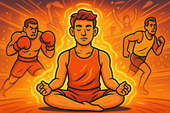
Keeping Calm in Competitive Sports: How to Train Your Mind, Body, and Chemistry for Peak Performance
Competitive pressure can overwhelm even the strongest athletes — but calm is trainable. By combining supplements like magnesium, L-theanine, and adaptogens with breathwork and mindset training, you can stay focused, balanced, and in control under any level of stress 🧠🏅.
-
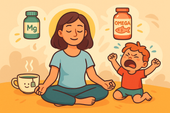
Supplements for Parents Facing Toddler Tantrums: Staying Calm When Little Emotions Run Wild
Toddler tantrums can drain even the most loving parent — but your calm is powerful. With the right supplements like magnesium, L-theanine, and ashwagandha supporting your nervous system, you can stay patient, grounded, and kind, even when emotions run high 🧸🌿.
-

Workplace Stress and Anger Management Support
Workplace stress can quickly turn into frustration — but calm is a skill you can train. By combining supplements like magnesium, L-theanine, and adaptogens with breathwork and mindset tools, you can stay focused, patient, and emotionally grounded no matter how intense the office gets 💼🌿.
-

How to Stay Patient With Family During Stressful Holidays
Holiday gatherings can stir up old stress and test your patience — but calm is possible. With nervous system support from magnesium, L-theanine, and adaptogens, plus mindful breathing and clear boundaries, you can stay centered, kind, and grounded even when family chaos unfolds 🎄💞.
-

Supplements to Keep Calm During Traffic Jams
Getting stuck in traffic doesn’t have to ruin your mood. With calming supplements like magnesium, L-theanine, and ashwagandha, you can train your body to stay relaxed and focused behind the wheel — turning gridlock into a moment of grounded patience 🚗🌿.
-
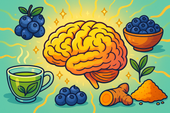
The Role of Antioxidants in Healing Brain Stress from Dissociation
Antioxidants protect the brain from the oxidative stress caused by trauma and dissociation. By neutralizing free radicals and supporting mitochondrial recovery, they help restore clarity, focus, and emotional balance — allowing the mind to heal at the cellular level 🌿🧠.
-
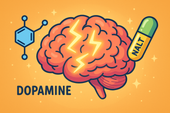
N-Acetyl L-Tyrosine (NALT) for Supporting Mental Clarity
N-Acetyl L-Tyrosine (NALT) fuels dopamine production — the neurotransmitter of focus and motivation. By supporting brain chemistry during stress, NALT helps restore mental clarity, energy, and alertness, making it easier to think clearly and feel present again ⚡🧠.
-

How Ginseng May Improve Focus and Energy in Dissociation
Ginseng helps combat the mental fatigue and fog that often come with dissociation. By supporting mitochondrial energy, balancing neurotransmitters, and regulating cortisol, it gently restores focus, motivation, and emotional presence — helping the mind reconnect with clarity and strength 🌿⚡.
-
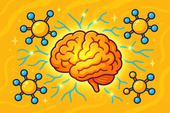
Phosphatidylserine and Dissociation: Supporting Cognitive Function
Phosphatidylserine helps calm the stress response by balancing cortisol, the body’s primary stress hormone. By lowering cortisol spikes, it protects memory, focus, and emotional stability — restoring clarity and mental presence for those struggling with dissociation 🧠🌿.
-
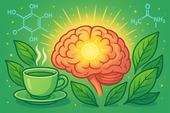
Can Green Tea Extract Help with Dissociative Brain Fog?
Green tea extract may help lift dissociative brain fog by supporting neurotransmitter balance, reducing inflammation, and enhancing energy at the cellular level. With its key compounds EGCG and L-theanine, it promotes calm focus, clarity, and emotional presence — helping you feel more alert and grounded 🍵🧠.
-
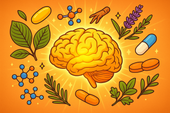
Building a Natural Supplement Stack for Dissociation Support
Building a supplement stack for dissociation means nourishing the brain and body back into communication. By supporting neurotransmitters, gut health, and energy balance through nutrients like magnesium, omega-3s, curcumin, and probiotics, you can help restore clarity, calm, and connection — one layer at a time 🌿🧠.
-

Chamomile and Lavender for Dissociative Anxiety Relief
Chamomile and lavender work together to calm dissociative anxiety by soothing the nervous system and restoring emotional safety. Their natural compounds balance cortisol, enhance GABA activity, and activate the vagus nerve — helping you feel grounded, connected, and at peace again 🌿💜.
-
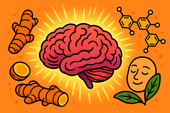
Curcumin for Inflammation and Mental Clarity in Dissociation
Curcumin, the golden compound in turmeric, does more than fight inflammation — it helps clear the mental fog often tied to dissociation. By calming neuroinflammation, balancing neurotransmitters, and supporting mitochondrial energy, curcumin can restore mental clarity, focus, and emotional presence 🌿🧠.
-
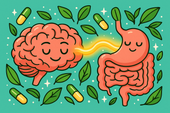
Probiotics and Dissociation: Exploring the Gut–Brain Axis
The gut–brain axis plays a vital role in emotional awareness and presence. When the microbiome is balanced, it supports serotonin production, vagus nerve activity, and calm focus. Probiotics help repair this connection — restoring safety, clarity, and the feeling of truly being in your body again 🌿🧠.
-
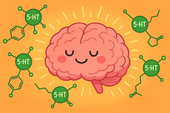
5-HTP for Dissociation: Supporting Serotonin and Emotional Stability
5-HTP helps bridge the gap between emotional numbness and stability by supporting serotonin production — the neurotransmitter that shapes mood, sleep, and sensory awareness. For people experiencing dissociation, 5-HTP may gently restore connection, presence, and emotional balance from the inside out 🌿🧠.
-
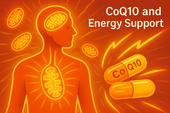
CoQ10 and Energy Support for People with Dissociation
Chronic dissociation often leaves the body running on empty — tired, foggy, and disconnected. CoQ10 helps recharge that system at the cellular level by restoring mitochondrial energy, reducing oxidative stress, and supporting the brain’s capacity to stay present. It’s energy medicine for both body and mind ⚡🧠.
-
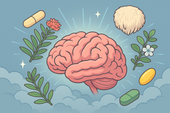
Nootropic Supplements That May Help Reduce Dissociative Brain Fog
Dissociative brain fog can make even simple thoughts feel distant or unclear — but natural nootropics may help the brain reconnect. Compounds like L-theanine, Lion’s Mane, Rhodiola, and Bacopa support neurotransmitter balance, oxygen flow, and mental energy, gently clearing the haze and restoring focus and presence 🌿.
-
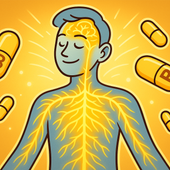
B Vitamins for Dissociation: Supporting Nerve Health and Energy
The B-vitamin family fuels the nervous system and supports emotional grounding — both vital for those experiencing dissociation. B1, B6, B9, and B12 power nerve repair, neurotransmitter balance, and energy production, helping restore clarity, connection, and mental presence from the inside out ⚡🌿.
-
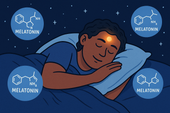
Melatonin for Restoring Healthy Sleep in Dissociation
Melatonin plays a vital role in helping people with dissociation restore their natural sleep rhythms. By balancing cortisol, calming the nervous system, and protecting the brain from stress, melatonin promotes deep, restorative rest — helping the body relearn that sleep is safe, healing, and connected 🌙.
-

Dissociation and Sleep Problems: Natural Sleep Support Supplements
Sleep problems and dissociation share the same root — a nervous system that no longer feels safe to rest. This article explores how natural supplements like magnesium, L-theanine, glycine, and ashwagandha can calm stress hormones, support GABA and serotonin, and help the body rediscover the deep, restorative sleep it needs to heal 🌙.
-
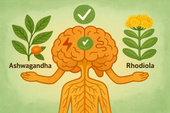
Adaptogens (Ashwagandha, Rhodiola) for Stress-Related Dissociation
Adaptogens like Ashwagandha and Rhodiola help the body recover from chronic stress — not by numbing it, but by restoring balance to the nervous system. For those experiencing dissociation, these herbs can regulate cortisol, stabilize mood, and rebuild resilience, allowing the mind and body to reconnect in a calmer, steadier way 🌿.


















































